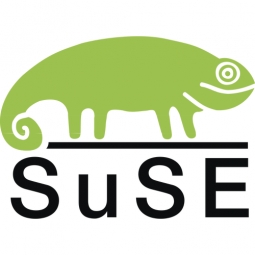
Technology Category
- Analytics & Modeling - Machine Learning
- Infrastructure as a Service (IaaS) - Private Cloud
Applicable Industries
- Cement
- Glass
Applicable Functions
- Product Research & Development
Use Cases
- Construction Management
- Time Sensitive Networking
Services
- Cloud Planning, Design & Implementation Services
- Data Science Services
The Customer
Ubisoft
About The Customer
Ubisoft is an international gaming company founded in France in 1986. The company operates in five continents and owns more than 40 development studios worldwide. Ubisoft works in 55 spoken languages and boasts of having the gaming industry’s most prominent in-house creative force, with over 80% of its teams dedicated to content creation. The company has a complex hybrid cloud and on-premises architecture and operates in almost every global territory. Ubisoft has always prioritized boosting innovation and driving technical agility, and over the years, Kubernetes has become an essential part of its strategic solution set.
The Challenge
Ubisoft, a global gaming company, was facing challenges in managing its complex hybrid cloud and on-premises architecture. The company had adopted Kubernetes for its strategic solution set, but the lack of a formal orchestration strategy led to cluster sprawl. Different teams were working in various environments, including AWS ECS and Docker Swarm, leading to an unmanageable growth of the estate. The company needed a solution that would provide a unified and consistent development methodology, automate basic deployment processes, and manage the entire Kubernetes estate through a single pane of glass. Additionally, Ubisoft wanted to optimize workflows, save time, and allow developers the freedom to develop in their own way.
The Solution
Ubisoft decided to standardize on Kubernetes and created the Ubisoft Kubernetes Service (UKS), a central Kubernetes provisioning platform that automates many processes. The company partnered with Rancher by SUSE to underpin UKS. This self-service Kubernetes platform, based on Rancher Prime, allows developers to spin up new Kubernetes clusters instantly in a controllable, centrally managed way. Developers can develop for any cloud environment without having to manage many of the basic deployment processes manually. The automation of these functions greatly simplified the development lifecycle. Additionally, Ubisoft runs its internal video platform, shopping toolbox, and a host of game administration tools on UKS. A critical service is Ubisoft’s gaming support tool, a user-facing service that uses machine learning to help support specialists answer players.
Operational Impact
Quantitative Benefit

Case Study missing?
Start adding your own!
Register with your work email and create a new case study profile for your business.
Related Case Studies.

Case Study
System 800xA at Indian Cement Plants
Chettinad Cement recognized that further efficiencies could be achieved in its cement manufacturing process. It looked to investing in comprehensive operational and control technologies to manage and derive productivity and energy efficiency gains from the assets on Line 2, their second plant in India.

Case Study
Digital Transformation of Atlanta Grout & Tile: An IoT Case Study
Atlanta Grout & Tile, a Tile, Stone & Grout restoration company based in Woodstock, Georgia, was facing challenges with its traditional business model. Despite steady growth over the years, the company was falling behind the web revolution and missing out on the opportunity to tap into a new consumer base. They were using independent software from different vendors for each of their department information and workforce management. This resulted in a lot of manual work on excel and the need to export/import data between different systems. This not only increased overhead costs but also slowed down their response to clients. The company also had to prepare numerous reports manually and lacked access to customer trends for effective business decision-making.
.png)
Case Study
Discrete Manufacturing Industries (Fiberglass Pipe)
The implementation of ERP software in a Discrete Manufacturing organization needs to be strategic, irrespective of its size and capacity. The client had already implemented an ERP system which fulfilled their requirements but was not efficient enough. Efficiency here meant Synchronized Planning, Updating and Multisite Planning. Planning at client’s place was done outside the ERP system. Lack of proper synchronization to the ERP system paved way to huge delays in the changes getting updated in the system. These delays caused disruption in achieving delivery schedules. Multisite Planning is a solution to an organization which has multiple production units (may or may not be geographically separated) and thus needs planning across these units to synchronize production activities within them. The client also has multiple factories and hence Production Planning control is very essential in their case. Since Multisite planning was not possible with Baan ERP system, this was another bottleneck for the client.

Case Study
Revolutionizing Construction Equipment Rental: A Case Study on ProsRent and ENO8
ProsRent, a startup that won the 'Best Financial Opportunity' and 'Best Pitch' at CodeLaunch 2016, aimed to revolutionize the way construction professionals source and rent heavy equipment. In the construction industry, project managers and contractors typically rent heavy equipment from supply companies. However, predicting inventory can be challenging, and finding the required equipment at the right time and place can be a hassle. If the preferred vendor doesn't have the required equipment, it results in wasted time and money in searching for it, often leading to higher costs due to non-preferred rates and increased delivery costs if the vendor is located far from the job site. Suppliers, on the other hand, desired access to a wider base of trusted renters that they didn't have to vet themselves and wanted to offer dynamic rental pricing based on demand and availability in their market. ProsRent's challenge was to produce a minimum viable product that was fast and first to market but also strong enough to engender loyalty and repeat business from the target market.

Case Study
IoT Solution Enhances Comfort and Energy Efficiency at Apple Valley Commons Office
Apple Valley Commons, a mixed-use office complex built in 1986, was facing significant comfort and energy efficiency challenges. The building, which houses a variety of businesses, was experiencing extreme temperature imbalances, causing discomfort to employees and clients. Despite outdoor temperatures being consistently high during summers, occupants had to use space heaters to keep warm. The electricity bills from the constant operation of the heat pump were exorbitant. The building's elevator room on the roof was also overheating, reaching temperatures of 130 to 140 degrees, causing the elevator equipment to shut down. The building's existing controls solution did not provide a front end for diagnostics or remote control. The building management was seeking a solution that could address these temperature issues, improve occupant comfort, reduce operational costs, and increase building visibility.




